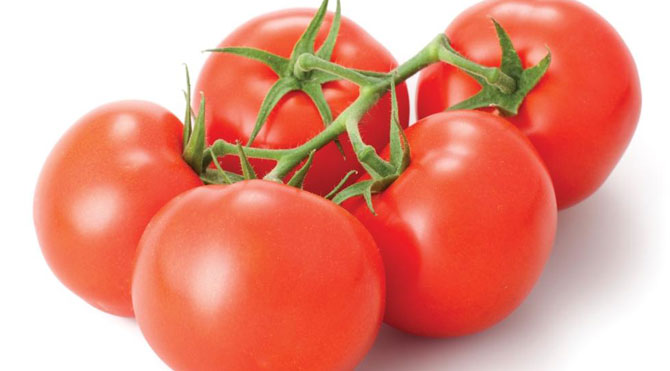3. Tomatoes
Refrigerating tomatoes can significantly diminish their rich, tangy flavor and alter their natural texture. Cold temperatures interfere with the ripening enzymes and break down the internal membranes, resulting in tomatoes that are mealy, mushy, and largely tasteless. The chill can also halt the development of sugars and acids that contribute to their distinctive taste.
To preserve their flavor and allow them to ripen evenly, tomatoes should be stored at room temperature on the counter. This environment enables them to maintain their texture and continue the natural ripening process. It’s best to keep them out of direct sunlight and arrange them stem-side down to prevent air from entering and moisture from escaping, which can prolong their freshness.
If you have unripe tomatoes, placing them in a paper bag can expedite ripening by concentrating the ethylene gas they emit. However, once tomatoes are fully ripe and you need to store them a bit longer, you can refrigerate them briefly to extend their shelf life—but be aware that this may still impact their flavor and texture.
Additionally, keeping tomatoes at room temperature not only enhances their taste but also helps retain their nutritional value. Tomatoes are rich in antioxidants like lycopene, and exposure to cold can reduce the levels of these beneficial compounds. Therefore, for the best culinary and health benefits, it’s advisable to store tomatoes outside the refrigerator.












0 Comments